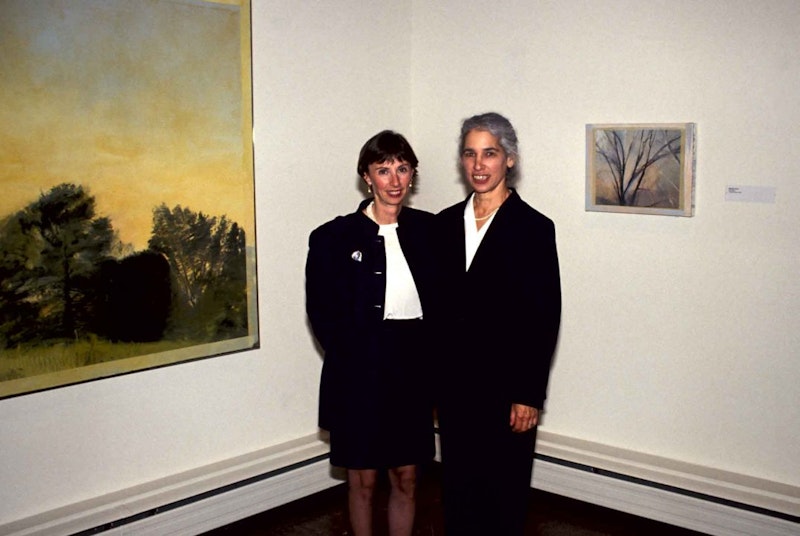Sylvia Plimack Mangold: It wasn't until we moved to the country that I started looking out the window.
Chloé Cooper Jones: It’s huge, boring, and empty, but it’s my favorite place to work.
Mangold: Oh, Pop art. Sure. Right. Two years. [Laughs] It was terrible.
Jones: Then, you and I drove out to the lake, ate some good food, and took a swim.
Mangold: And I loved it.
•••
Jones: It’s progress. It’s control. It’s very distracting.
Mangold: It's kind of on the tip of my tongue.
Jones: You can’t erase your body; you can only figure out how to live in it.
Mangold: I mean, I was around—we went to all these different exhibitions.
Jones: Do you ever reach a threshold where the time you spend working alone is a nonproductive escape from reality?
•••
Mangold: And it opened up all these different planes, which were kind of interesting in an abstract way, and also in a philosophical way, because it was about reflection and illusion.
Jones: That being said, the book is not a straight-forward travel narrative—nobody cares about someone else’s travel pictures.
Mangold: Because it's too hard. So I don't have to go into that.
Jones: Everybody thinks I’m very strange.
Mangold: Correct.

